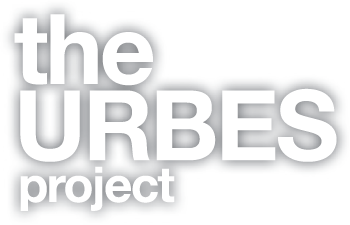Related projects
URBES is closely connected to several networks, projects and organizations, which together create a web of knowledge production on urban sustainability and resilience. Some of them are presented here.
The Cities and Biodiversity Outlook is a joint publication by the Convention on Biological Diversity and Stockholm Resilience Centre. Drawing on contributions from more than 120 scientists worldwide, the CBO states that over 60 percent of the land projected to become urban by 2030 has yet to be built. By 2050, the world will have undergone the largest and fastest period of urban expansion in human history, having significant implications for biodiversity and ecosystems if current trends continue. This presents a major opportunity to greatly improve global sustainability by promoting low-carbon, resource-efficient urban development that can reduce adverse effects on biodiversity and improve quality of life. The CBO also demonstrates how sub-national and local authorities can play a central role in achieving the Aichi Biodiversity Targets.
The first part, Action and Policy, was launched in Hyderabad, India, at the Cities for Life Summit, a parallel session to the CBD COP11. The Action and Policy showcases a range of successful initiatives by governments in cities around the world and draws upon the scientific findings in the Scientific Foundation.
The Scientific Foundation is published as a book by Springer, entitled: Urbanization, Biodiversity and Ecosystem Services - Challenges and Opportunities. A Global Assessment. The book was launched at the UN Headquarters in New York, October 4 2013, during the World Habitat Day celebrations, followed by the European launch in Brussels on October 10 2013. Locations for the local launches in 2013 and 2014 include Cape Town, Barcelona, Stockholm, Istanbul, Tokyo and Melbourne.
OpenNESS aims to translate the concepts of Natural Capital (NC) and Ecosystem Services (ES) into operational frameworks that provide tested, practical and tailored solutions for integrating ES into land, water and urban management and decision-making. It examines how the concepts link to- and support wider economic, social and environmental policy initiatives in the EU, as well as scrutinizes the potential and limitations of the concepts of ES and NC. Our URBES partners and are members.
Biodiversity Skills aims to develop a biodiversity training approach for local administrations’ staff based on best available practice. Staff will be trained with the new material, allowing them to better integrate biodiversity into local plans and actions.
URBIS is a global network of cities and sub-national authorities, addressing the design and governance of urban regions and surrounding ecosystems. The concept of urban biosphere (URBIS) emerged amidst increasing awareness that cities interact profoundly with their encompassing bioregions and substantially altering both near and distant ecosystems. At the same time, modern cities offer unprecedented and often untapped opportunities for innovation, efficiency-gains, leadership and social organization.
The Cities Biodiversity Center of ICLEI – Local Governments for Sustainability hosts the URBIS Secretariat, in close partnership with the Stockholm Resilience Centre (SRC) as Scientific Coordinator, and the Secretariat of the Convention on Biological Diversity (SCBD) as a facilitator between local, sub-national and national governments. Partners include local and sub-national governments, ministries, international organisations, non-governmental organisations, research institutions and individuals.
Urban Planet is an initiative taken by The Stockholm Resilience Centre with the aim to create an innovative, attractive learning environment with interactive data, maps, and innovative solutions for more sustainable urban regions. Urban Planet is a joint project of the Stockholm Resilience Centre, Albaeco, Mistra Urban Futures, SWEDESD and GAME department at Gotland University.
Phenotype - health from outside in, or the Positive Health Effects of the Natural Outdoor environment in Typical Populations of different regions in Europe project, is a collaborative project funded through the European Commission seventh Framework Programme, with a duration of 48 months. PHENOTYPE is focused on the integration of human health needs, and the translation of the research outcomes into recommendations for policy makers and guidelines for professional practitioners.
Urban Nexus is a coordination and support action funded by the European Union under the 7th Framework Programme. URBAN-NEXUS is all about enabling knowledge transfer and dialogue to form long-lasting partnerships in and between cities and regions to deal with integrated sustainable urban development, focusing on Europe.
New from Other projects
Have we missed something that should be added to this page? Email us with suggestions!


